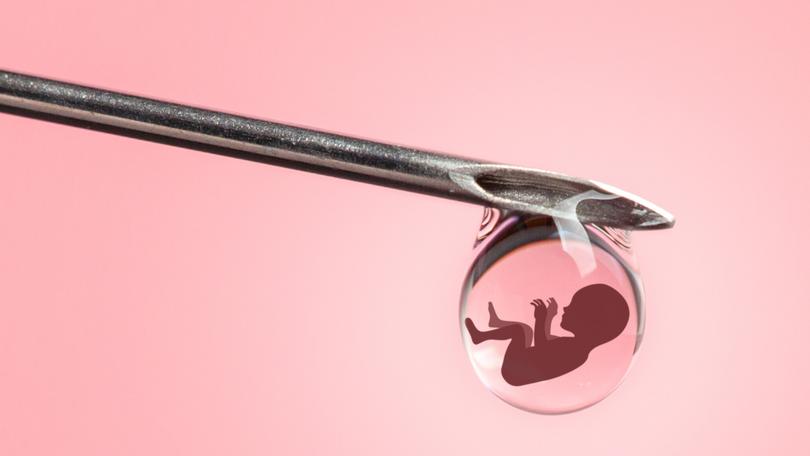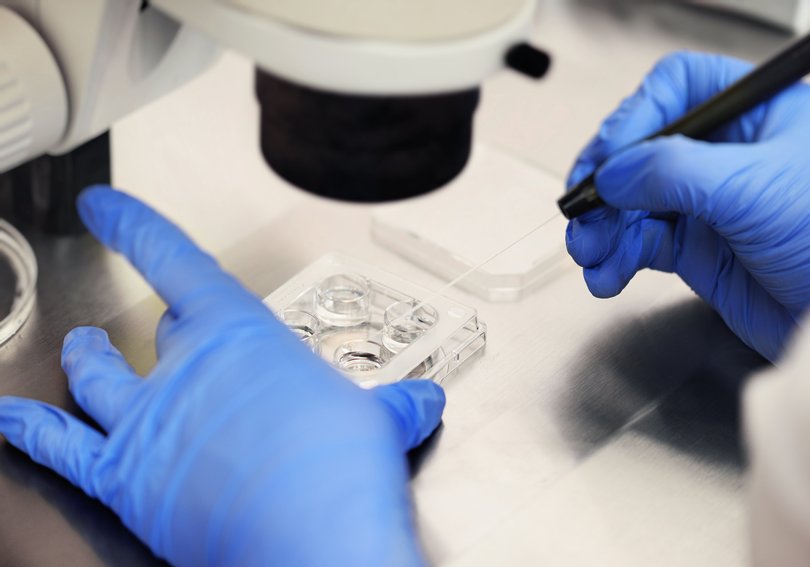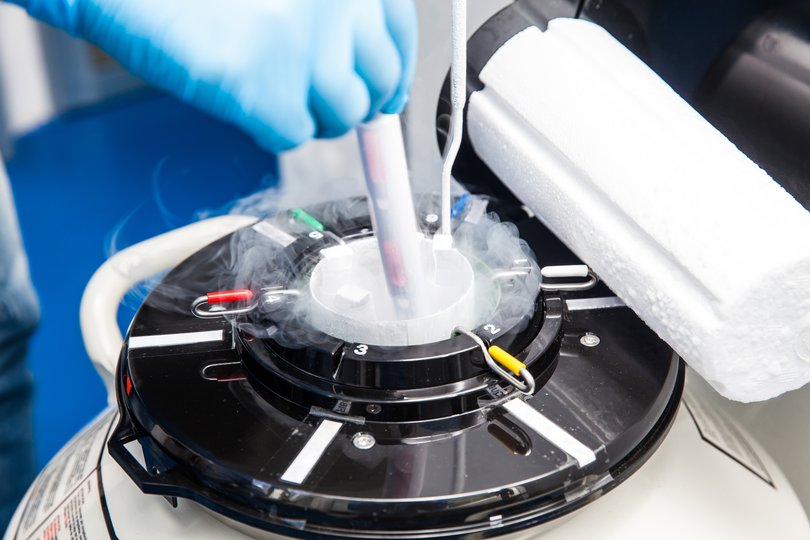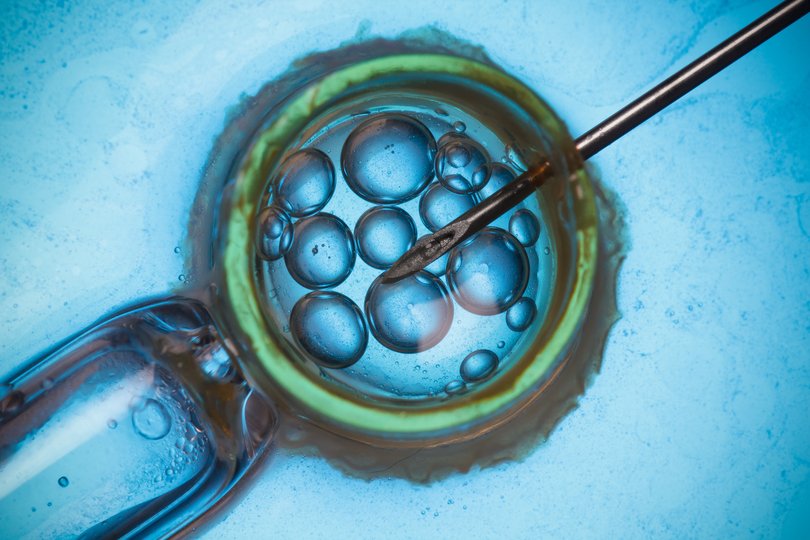Bombshell IVF ruling that embryos are ‘people’ is tearing the US apart

Back in December 2020, a patient at a hospital in Mobile, Alabama, wandered through the unlocked door of its fertility clinic and, out of curiosity, removed a box containing several embryos from storage in a tank of liquid nitrogen.
The motive has never been established, but the container was so cold it freezeburned the patient’s hand and was dropped — accidentally, according to court documents — to the floor.
The embryos had to be destroyed.
Sign up to The Nightly's newsletters.
Get the first look at the digital newspaper, curated daily stories and breaking headlines delivered to your inbox.
By continuing you agree to our Terms and Privacy Policy.Three couples, whose frozen embryos were lost, later sued the clinic for wrongful death.
The clinic countered that Alabama’s Wrongful Death of a Minor Act — which enables parents to claim damages over the death of a child through negligence — didn’t apply to frozen embryos, since they hadn’t been born and so weren’t technically children.
But in a decision that has sent shockwaves through the US, ratcheting up the country’s ferocious battle over reproductive rights and even sparking claims that America is turning into a theocracy, the Alabama Supreme Court last Friday sided with the parents.
It overturned a lower court ruling that had previously dismissed the case.
Describing the embryos as “extra-uterine children” in a “cryogenic nursery”, the state Supreme Court justices ruled that frozen embryos in test tubes should be considered “people”.
The wrongful death law applied to “all unborn children, regardless of their location”.
It’s the first known case in which a US court has declared that frozen embryos are “children” and anyone who harms or destroys them can be held liable for wrongful death.
The court’s chief Justice, Tom Parker, peppered his written opinion in support of the ruling with Biblical references to the sanctity of life and how destroying it will “incur the wrath of a holy God”.
Fears the decision will prevent access to fertility treatment proved well-founded when Alabama’s largest hospital announced on Wednesday that it was suspending its in-vitro fertilisation (IVF) services following the court decision.
The University of Alabama at Birmingham Health System said its doctors and patients could be exposed to criminal prosecution and punitive damages “for following the standard of care for IVF treatments”.
The hospital’s infertility clinic will continue retrieving eggs from women for IVF, but it will no longer undertake the next stages of the process — fertilising the eggs, allowing embryos to develop and implanting them in a patient’s uterus.
Other fertility clinics have since followed suit.
“The legal ramifications are too far-reaching and scary,” said a fertility specialist in Birmingham, Alabama, on Thursday.

The decision has appalled medical bodies and reproductive rights groups, who point out the court’s definition of what constitutes a person has no scientific rationale.
The American College of Obstetricians and Gynaecologists said that the decision “reflects a dangerous insertion of individual ideological beliefs into policymaking” about medical care.
The White House condemned the ruling and said it would cause the same “chaos” as when the U.S. Supreme Court swept aside the nationwide right to abortion in 2022 and “paved the way for politicians to dictate some of the most personal decisions families can make”.
According to the Centres for Disease Control and Prevention, 97,128 babies were born in the US as a result of IVF treatments in 2021 alone.
Success rates vary depending on the patient and techniques employed, and multiple embryos are usually created in the process of IVF.
Many are frozen for use at a later date. However, some are never used at all and are later discarded or used for research.
Critics of the court ruling say it could make fertility treatment too expensive and less accessible for countless families by pushing up liability costs.
It could also discourage clinics from offering it for fear of being held accountable every time it failed to yield a successful pregnancy.
It could also mean parents will have to pay for embryos to be stored in perpetuity, as the embryos won’t be allowed to be destroyed, even if the parents decide they don’t want any more children or decline to donate the embryos to other couples.
When you talk about an embryo. . .to me, that’s a life.
Quite apart from the medical and fertility implications, some argue that the court ruling represents an existential threat to the US constitution, as Christian conservatives continue to chip away at its doctrine of separation between church and state.
In 2022, the conservative-dominated US Supreme Court overturned the 1973 Roe v Wade case that established abortion as a constitutionally protected right.
Observers noted at the time that it was hardly a coincidence that six of the nine members of that court are Roman Catholic.
A strong religious motivation is far more blatant in Alabama Supreme Court’s decision last Friday.
“Human life cannot be wrongfully destroyed without incurring the wrath of a holy God, who views the destruction of His image as an affront to Himself,” wrote chief Justice Parker.
“Even before birth, all human beings bear the image of God, and their lives cannot be destroyed without effacing his glory.”
Writing in The New York Times, columnist Charles M. Blow declared: “If you don’t think this country is sliding toward theocracy, you’re not paying attention.”
A headline in the similarly Left-leaning Washington Post echoed the sentiment, warning ‘Alabama ushers in the theocracy’.
The author of the article, columnist Ruth Marcus, argued that while the immediate threat was to the availability of IVF specifically in Alabama, the longer-term danger was to “expand the definition of unborn personhood” and clamp down on birth-control methods.
“The ultimate aim, of course, is to have the fertilised egg declared a person from the moment of conception,” she said.

The Alabama ruling won’t go to the US Supreme Court as it only affects state law, but observers note that legal precedent in one state is often copied by others with similar political views.
Following the 2022 overturning of Roe v Wade, 14 states — including Alabama — have either banned abortions, with no exceptions even for rape or incest, or tightened al ready strict anti-abortion laws.
Alabama is historically one of the country’s most religious and conservative states, where 86 per cent of people still identify as Christian.
In 2019, a grand jury in the state decided to charge a pregnant woman, Marshae Jones, with manslaughter when she suffered a miscarriage after being shot in the stomach by another woman, although prosecutors ultimately dismissed the case.
Not only does Alabama ban abortions but its attorney general has even threatened to prosecute anyone who helps women travel out of state to have the procedure.

The Republican Party invariably takes its lead on moral issues from the Bible Belt.
And now, Donald Trump-aligned think-tanks are pushing for Alabama’s brand of Christian legislation to be introduced nationwide in a second Trump administration as they work towards what they term a “moral restoration” of the US even a supposedly moderate Republican, like presidential contender and mother-of-two Nikki Haley, said she agreed with the Alabama Supreme court decision.
“Embryos, to me, are babies,” she told NBC News.
“I mean, I had artificial insemination. That’s how I had my son… One thing is to have to save sperm or to save eggs.
“But when you talk about an embryo, you are talking about, to me, that’s a life.”
An inevitable consequence of the Alabama ruling is that it will polarise American society still further.
There are fears that infertility clinics, like abortion centres before them, could now face violent attacks from pro-life zealots.
The ruling could also prove crucial in the election this November. T
The Biden campaign has blamed the Alabama court ruling on Trump for setting a precedent by packing the US Supreme court with the conservative justices who revoked Roe v Wade.
The abortion clampdown undeniably helped the Democrats win over vital female voters in the last election.
Alabama’s determination not to invoke the “wrath of a holy God” may have provided Biden with a heaven-sent opportunity.
